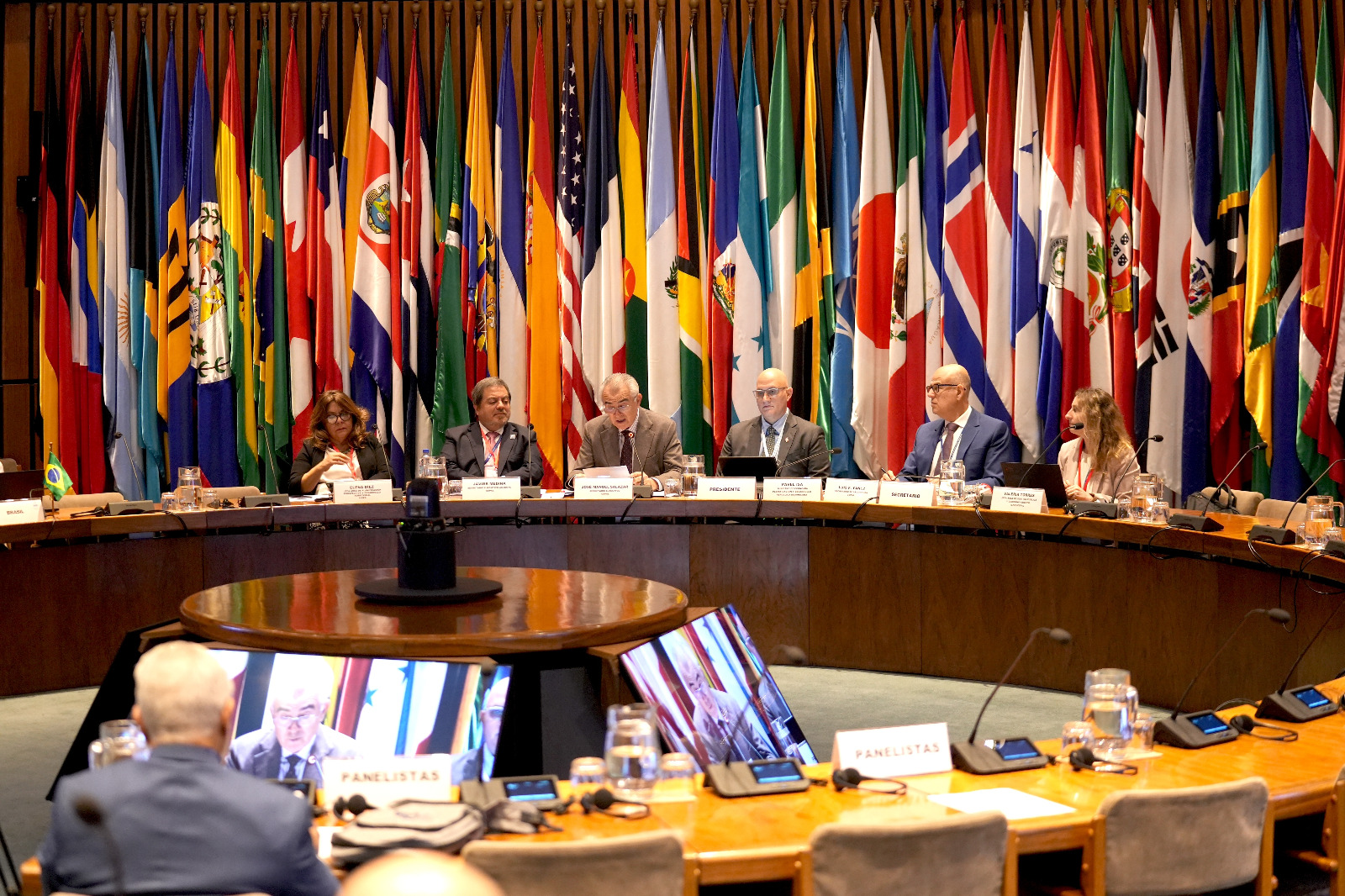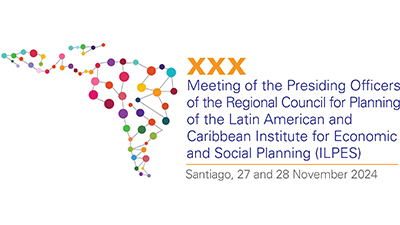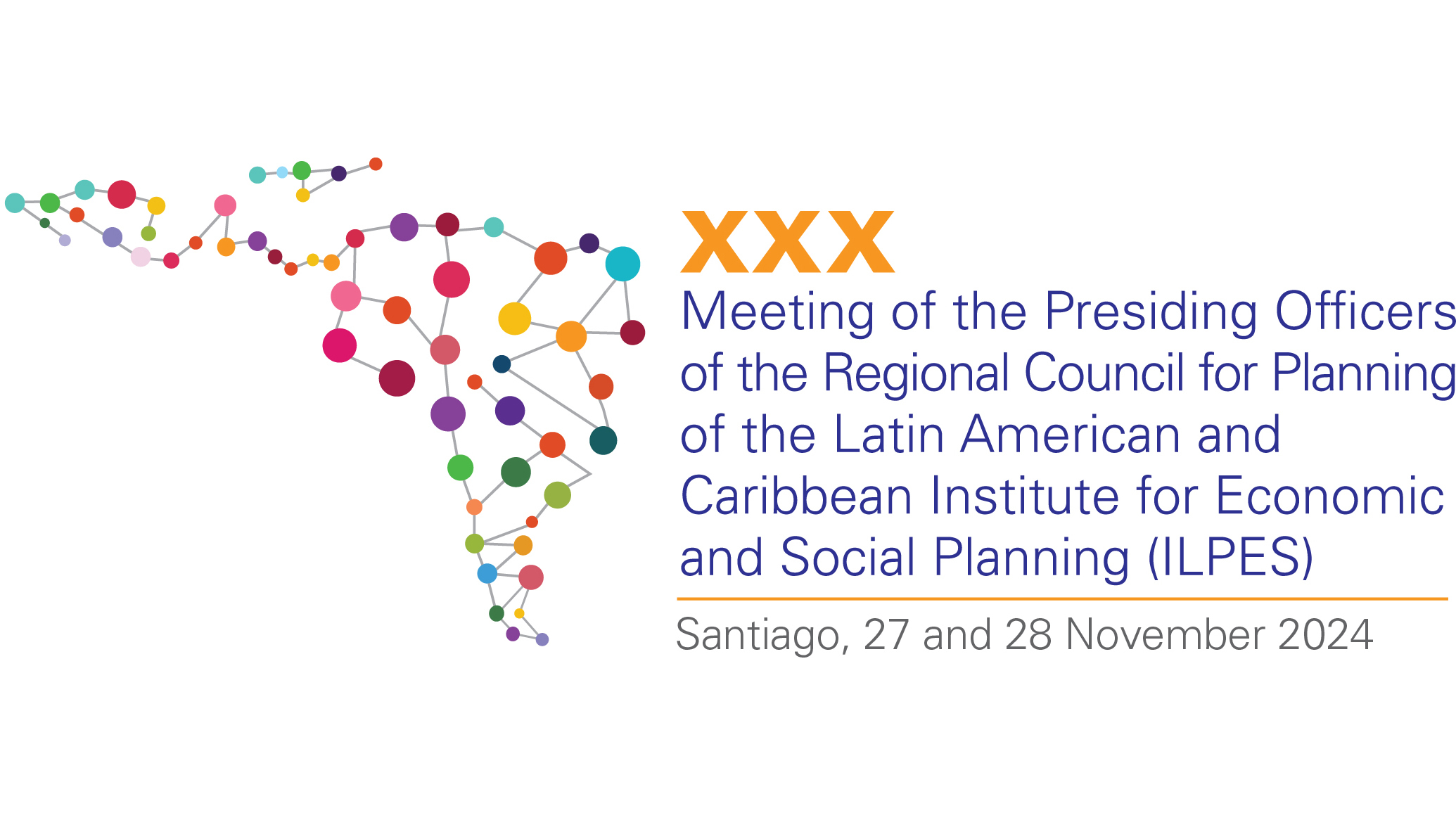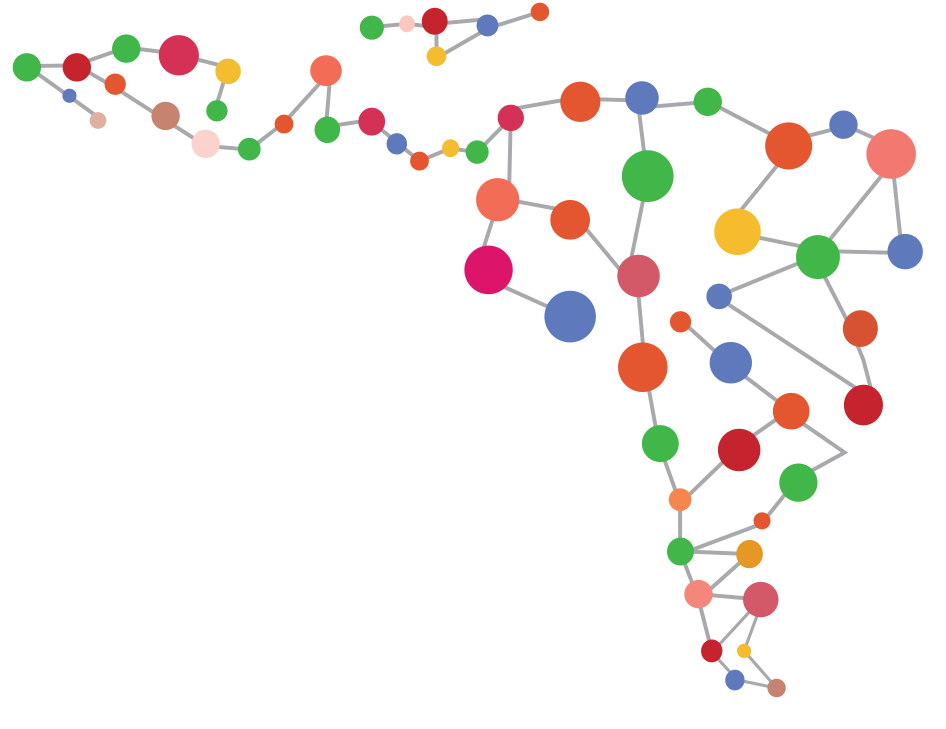To Build a More Productive, Inclusive and Sustainable Future, Latin America and the Caribbean Must Overcome the Trap of Low Institutional Capacities and Ineffective Governance
Work area(s)
Today marked the inauguration of the Thirtieth Meeting of the Presiding Officers of the Regional Council for Planning (RCP) of ILPES-ECLAC in Chile.

Only by overcoming the trap of low institutional capacities and ineffective governance will Latin America and the Caribbean be able to build a more productive, inclusive and sustainable future, representatives asserted at today’s inauguration of the Thirtieth Meeting of the Presiding Officers of the Regional Council for Planning (RCP) of the Latin American and Caribbean Institute for Economic and Social Planning (ILPES), which is being held through Thursday, November 28, 2024 at the headquarters of the Economic Commission for Latin America and the Caribbean (ECLAC) in Santiago, Chile.
The two-day gathering was inaugurated by José Manuel Salazar-Xirinachs, ECLAC’s Executive Secretary, and Pável Isa, the Minister of Economy, Planning and Development of the Dominican Republic, in its capacity as Chair of the Regional Council for Planning of ILPES.
In his remarks, ECLAC’s highest authority argued that Latin America and the Caribbean is mired in a development crisis characterized by three traps: a trap of low capacity for growth and for transforming production systems; a trap of high inequality, low social mobility and weak social cohesion; and a trap of low institutional capacities and ineffective governance, which affects the implementation of public policies and transformation processes in the region.
“In this scenario, I applaud the Regional Council for Planning’s decision to start negotiating a regional agenda on governance of planning and public management for sustainable development in Latin America and the Caribbean, based on 4 pillars: (i) governance, institutional frameworks and social dialogue; (ii) a forward-looking dimension and anticipatory governance; (iii) coordination to achieve coherence and integrality in public policies; and (iv) evaluation, public value and the establishment of a culture of continuous learning. This process will require more networking, mutual learning and collaborative work among the various stakeholders,” José Manuel Salazar-Xirinachs emphasized.
“It is encouraging to see that at least 19 of Latin America and the Caribbean’s 33 countries, along with more than 65 territories, have formulated long-term plans or strategies with time frames that extend to 2030 or even 2050,” he said.
The Regional Council for Planning of ILPES, he stressed, is an intergovernmental space for technical-political dialogue in which planning authorities exchange experiences and knowledge on how to face development challenges and create a culture of foresight in national and subnational areas, and on how to strengthen public management and bolster state capacities.
In that framework, José Manuel Salazar-Xirinachs unveiled the main conclusions of the position document prepared by ECLAC for its 40th session, entitled Development Traps in Latin America and the Caribbean: Vital Transformations and How to Manage Them, stressing the importance of focusing not only on “what to do,” but also on the “hows.” Specifically, he called for making progress on matters of governance; institutions’ TOPP capabilities (technical, operational, political and prospective); spaces for social dialogue; and on the political economy of the transformations.
Meanwhile, Minister Pável Isa of the Dominican Republic stated: “Time is running out, all different kinds of time: political, climatic and nature-related. We are obligated to respond, for our people and for our planet. Through planning and public policy management, we can contribute to responding effectively. We hope that this two-day meeting will serve as a space for moving towards concrete proposals for intervention that enable us to hasten the forging of an agenda on governance of planning and effective public management for inclusive and sustainable development.”
At the meeting, Minister Isa will present a document for the Presiding Officers’ consideration entitled Guidelines for the drafting of a regional agenda on governance of planning and public management for sustainable development in Latin America and the Caribbean, which seeks to take concrete steps in this direction.
“From our perspective, this shared agenda is obligated to address the growing need (for support) in at least the following 10 areas: foresight; management for results; policy articulation; the alignment of budgeting and planning; the generation of data for follow-up and evaluation; staff training; the territorialization of policies; the intertemporal alignment of policies; public participation in defining policies; and digital transformation in policy management,” the official from the Dominican Republic explained.
The meeting will include two thematic panels, the presentation of reports on the activities of ILPES-ECLAC and its programme of work, and information on the preparations for the XX Meeting of the Regional Council for Planning, which is scheduled for the second half of 2025.
The Presiding Officers of the RCP of ILPES – made up of the Dominican Republic (as Chair), Brazil, Chile, Dominica, Ecuador, Guatemala, Jamaica and Peru – meets every two years to review progress on work and fulfillment of the agreements adopted by the Regional Council for Planning, which is the main intergovernmental body steering the activities of this Institute of ECLAC.
In this context, on Friday, November 29, the Seminar on Collaborative Governance as a Tool for Sustainable Development will be held, organized by ECLAC (through ILPES), the CAF-Development Bank of Latin America and the Caribbean, the Spanish Agency for International Development Cooperation (AECID), the Government Laboratory of Chile and Asuntos del Sur.
Related content

XXX Meeting of the Presiding Officers of the Regional Council for Planning of the Latin American and Caribbean (ILPES)
The Presiding Officers of the Regional Council for Planning of the Latin American and Caribbean Institute for Economic and Social Planning (ILPES)meet every two years to review the progress of work…

Authorities from the Region Will Discuss the Challenges of Transforming Institutional Frameworks for Development Planning
On November 27-28, the Thirtieth Meeting of the Presiding Officers of the Regional Council for Planning will take place at ECLAC’s headquarters. On Friday, November 29, a Seminar on Collaborative…
Related link(s)
Country(ies)
Contact
Public Information Unit
- prensa@cepal.org
- (56 2) 2210 2040

